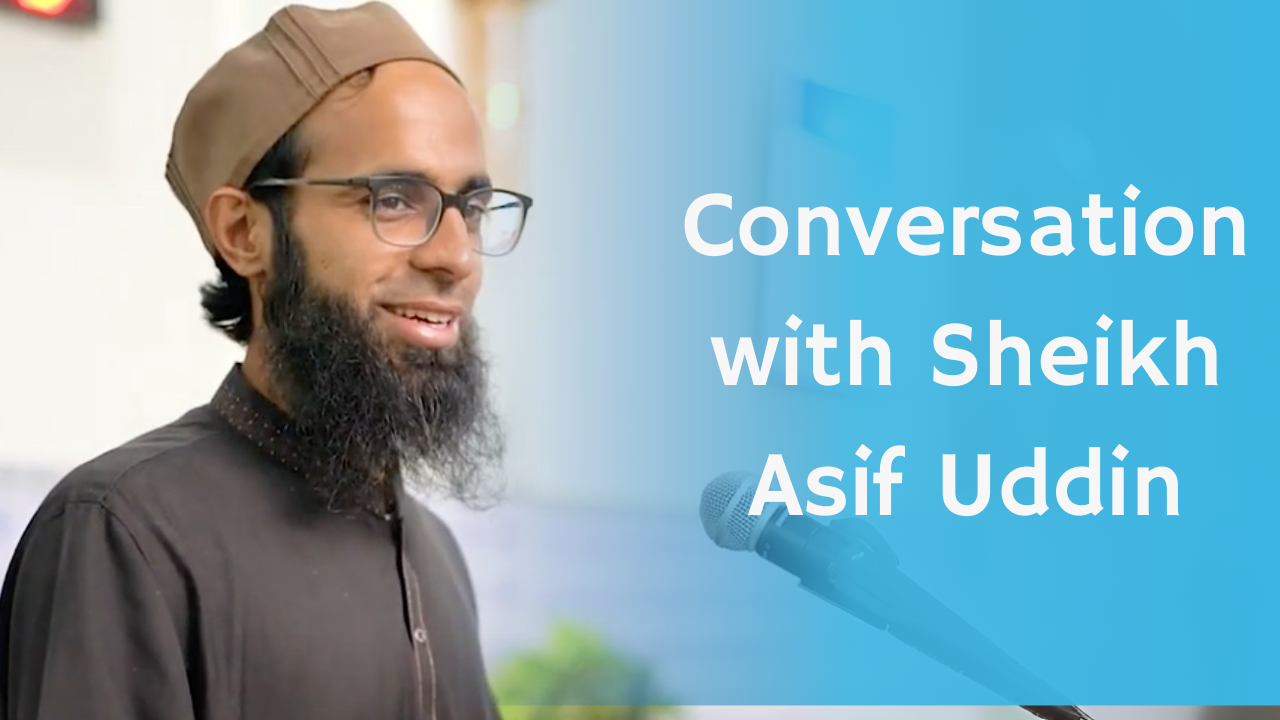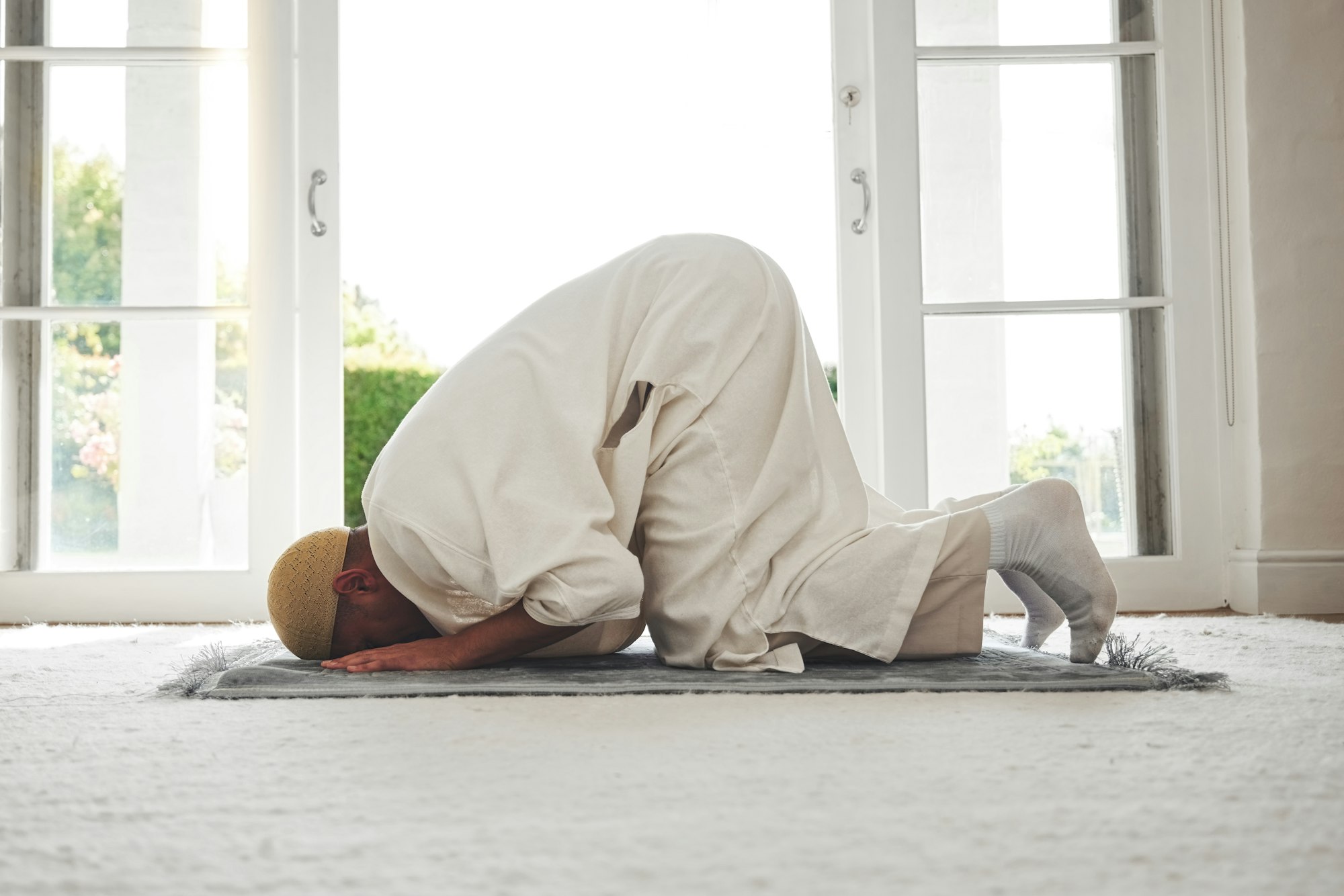
Imagine standing for Tahajjud, feeling light, strong, and completely present in your worship. Picture fasting in Ramadan without sluggishness, exhaustion, or painful bloating after Iftar. Now, think about how often poor health prevents us from reaching our full potential—not just in our careers or daily lives, but in our ibadah.
For many Muslims, health is an afterthought, something we address only when illness strikes. But what if we told you that taking care of your health is as much a part of your deen as prayer and fasting?
Enter Sheikh Asif Uddin, an Islamic scholar and holistic health coach who believes that optimal health—spiritually, mentally, and physically—is at the core of a strong believer. As the founder of Integrative Shifa and a full-time instructor at Darul Qasim College, Sheikh Asif merges centuries-old Islamic wisdom with modern wellness practices. His mission? To shift the Muslim mindset from simply surviving to truly thriving—through faith-based, holistic health.
Sheikh Asif’s journey into wellness was deeply personal. After struggling with asthma, allergies, and sports injuries, he found that conventional medicine only provided temporary relief. His search for true healing led him to holistic health, where he discovered that Islam had already provided a blueprint for well-being centuries ago.
🗣️ Q: What inspired you to pursue both Islamic scholarship and holistic health coaching?
Sheikh Asif: “My parents instilled in me a love for Islamic knowledge, even though they didn’t have the opportunity to study it themselves. I pursued Islamic studies, but my personal health struggles made me explore alternative healing. When I saw how deeply Islam connects to health—how the Prophet ﷺ lived, ate, and took care of himself—it all clicked. Our bodies are an amanah (trust), and taking care of them is an act of worship.”
He emphasizes that spirituality and physical health are inseparable. A person who neglects their body will struggle in their worship, whether through fatigue in Salah, poor digestion while fasting, or mental fog during Quran recitation.
“The strong believer is better and more beloved to Allah than the weak believer.” (Hadith, Muslim)
This Hadith isn’t just about faith—it also refers to physical strength. A healthy, energetic believer can pray longer, fast more comfortably, and serve the community more effectively.

Many assume health is just about food, but Sheikh Asif teaches that it’s about lifestyle choices, stress management, and even social connections.
🗣️ Q: How does Islam guide your approach to nutrition and wellness?
Sheikh Asif: “The Quran and Sunnah repeatedly emphasize eating what is pure (tayyib) and beneficial. It’s not just about avoiding haram food but also about choosing what nourishes us. The Prophet ﷺ encouraged moderation and mindful eating. But beyond food, Islam teaches us to take care of our emotional and mental health—our relationships, stress levels, and sleep patterns all play a role.”
At Integrative Shifa, Sheikh Asif teaches a two-tiered health model:
By addressing both, Muslims can align their health with their faith.
For many Muslims, maintaining healthy habits is difficult in a fast-paced, convenience-driven world. From late-night social media scrolling to fast food culture, unhealthy habits have become the norm.
🗣️ Q: What are the biggest challenges Muslims face in maintaining healthy habits?
Sheikh Asif: “One of the biggest problems is that we separate deen and dunya. In the past, Islamic civilizations led the way in medicine, nutrition, and physical wellness, all while maintaining strong faith. Today, we’ve adopted a mindset where taking care of health is seen as ‘extra’ rather than a core part of Islam.”
He also points out the issue of halal but unhealthy food:
“We ask if something is halal, but we rarely ask if it’s tayyib (pure). Many processed foods, though technically halal, are filled with harmful chemicals. The Prophet ﷺ ate whole, natural foods—not things with a list of ingredients two paragraphs long!”
His advice? Go beyond halal and seek what is tayyib.

For Muslims looking to integrate holistic health into their daily lives, Sheikh Asif shares simple, actionable steps:
✅ Follow the Sunnah in Eating – Eat in moderation, chew slowly, and eat with family. The Prophet ﷺ advised leaving one-third of the stomach empty and emphasized eating together, as there is barakah (blessing) in it. This also fosters emotional well-being.
✅ Prioritize Sleep – Lack of sleep affects not just physical health but also focus in Salah and productivity in daily life.
✅ Stay Active – Walking, stretching, and exercise are Sunnah. The Prophet ﷺ was physically active well into his later years.
✅ Manage Stress Islamically – Turn to dhikr, dua, and a strong support system instead of unhealthy coping mechanisms.
✅ Ask for Guidance – Navigating the health industry is overwhelming when you’re on your own.
While personal responsibility is key, Sheikh Asif believes institutions play a huge role in shaping healthier Muslim communities.
🗣️ Q: How can mosques and Islamic schools promote wellness?
Sheikh Asif: “We need to lead by example. If Islamic schools are feeding children Takis and unhealthy sodas, how can we expect them to grow up with good health habits? Masajid and schools should offer nutritious options, encourage movement, and educate families on wellness as part of deen.”
This includes:
📌 Replacing junk food from vending machines in Islamic organizations
📌 Organizing fitness activities at mosques
📌 Hosting workshops on Prophetic eating habits
“When we create a culture where health is valued as part of Islam, our entire ummah benefits.“
At the heart of Sheikh Asif’s message is a shift in mindset:
“Taking care of your health isn’t a luxury—it’s a duty. It’s not just for ‘health-conscious’ people; it’s for every Muslim because it directly impacts our ability to worship and serve Allah.”
The Muslim community must move beyond just halal and embrace tayyib. Health isn’t about following trends—it’s about following the Sunnah and recognizing that our bodies are a trust from Allah.
📢 A Call to Action: Take one step today—choose one Sunnah habit to implement for better health. Whether it’s eating mindfully, improving sleep, or increasing physical activity, every small change brings us closer to an optimal, faith-driven life.
🌿 For more on holistic health through an Islamic lens, visit Integrative Shifa.